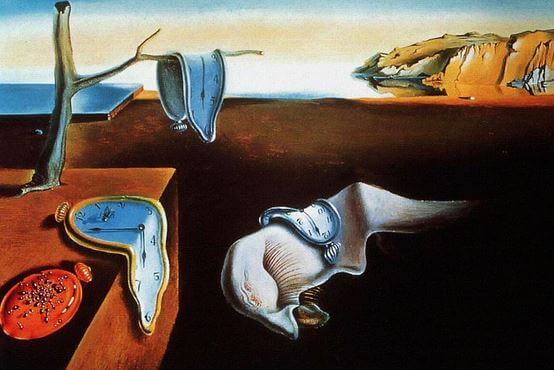Almost all of us go through stages where we can’t sleep properly at some point in our lives, this may be because we don’t reserve the necessary hours to sleep or that we don’t feel like we can really rest.
Non-repairing sleep may be the complaint that sleep quality is poor. He doesn’t feel rested when he wakes up after he’s slept for the necessary hours.
- As we will see.
- The idea of sleeping 8 hours a day is very relative and does not apply to everyone.
- That is.
- Each person needs something different in terms of sleep and rest.
- Let’s see a little more of that?.
You should know that the number of hours everyone needs to sleep varies considerably, someone may not need more than 5 hours of sleep a day, and others need 10 hours to feel rested.
Those who sleep little are often concerned about the duration of sleep, however, unlike those suffering from insomnia, they have no difficulty falling asleep and staying asleep, so they do not present daytime symptoms such as fatigue, concentration problems. irritability.
However, sometimes people who get little sleep because they want to rest longer can stay in bed for hours and create sleep patterns similar to those with insomnia. Obviously, this will create this feeling of lack of quality and amount of sleep.
Also, over the years, the quantity and quality of sleep varies and becomes “less and less satisfactory. ” In our turn, we can also go through complicated life situations that prevent us from “closing our eyes. “
As you can see, not all of these situations are a problem in themselves, but they can be the beginning of the development of a daytime symptom that is both painful and unpleasant.
As we mentioned, the complaint of the lack of restful sleep is so common that we have all gone through times when we feel exhausted, anxious and tired of not sleeping properly.
Therefore, knowing that our body uses sleep as a restorative form and to organize, we can imagine that the consequences of its lack are devastating, here are some:
This is one of the most notable consequences of lack of sleep: when we don’t get enough sleep, we feel so overwhelmed that everything seems unsettling and unbearable.
Therefore, we end up showing aggressive behaviors with everything around us, including ourselves, much of what happens around you bothers you, and even the smallest detail irritates you in excess, worse, it is something that we feel unable to control.
Lack of restful sleep has a negative impact on our mood, so fatigue and lack of mental rest deeply sadden us and make us unable to perform our tasks.
This makes us lose the joy and desire to live, exhausting our self-esteem and our desire for new projects, so our attitude will be an attitude of abandonment and inferiority.
In addition, fatigue itself can even cause strange or strange hallucinations and perceptual experiences in any sensory modality (hearing, visual, body, etc. ).
As we have said, lack of sleep makes it difficult to control our emotions, thoughts and behaviors, in this sense emotional instability prevents us from dealing with our emotions and, as a result, we feel like a kind of roller coaster.
Therefore, suddenly we may want to cry, laugh or simply hide from a world for which we do not want to be responsible for an indeterminate period.
Attention and concentration decrease to unexpected limits. When we are tired, we cannot concentrate on anything, nor think clearly, which leaves us deeply stunned and unable to perform the tasks for lack of lucidity.
This confusion does not imply a malfunction, but a feeling that will be mitigated with a proper rest.
Unsurprisingly, lack of concentration prevents us from understanding the reality around us, so it is likely that if we have not slept well our behaviors and thoughts are much more erratic.
If sleep disorders or poor sleep quality persist for a long time, we may end up with more serious problems such as major depressive disorder, high blood pressure and heart attack, more job absences and lower job productivity, lower quality of life. And more economic problems.
Knowing the needs of our body and mind is essential to give us a good rest, so our task is to examine what our customs are at bedtime and how they affect our rest.
Therefore, we must maintain certain routines in a stable manner. Let’s look at some of the tips psychologists give us:
? Do not take caffeine at least 6 hours before bedtime
? Do not smoke or drink alcohol at least 2 to 3 hours before bedtime.
? Do not exercise excessively before bedtime.
? Do not eat large amounts of food and/or liquids before bedtime
? Don’t eat if you wake up at night.
? Maintain a pleasant temperature and reduce brightness and noise in the room where you will sleep.
? Don’t lie hungry
? Avoid sleeping on a very hard mattress.
? Remove the alarm clock from the room to reduce anxiety.
? Don’t go to bed until you’re sleepy
? If you do not sleep in 15 to 20 minutes, it is best to get up and do a quiet activity to return when you are sleepy.
? Keep schedules regular and go to bed just for sleep or sex.
If despite controlling all these variables sleep difficulty persists, you should consult a specialist to help you solve your problems Remember when you sleep, you have life?And give your break the prominence it deserves in your life.
Images of Salvador Dali, Photos of Valentina, Bruneiwska and natalia_maroz.

